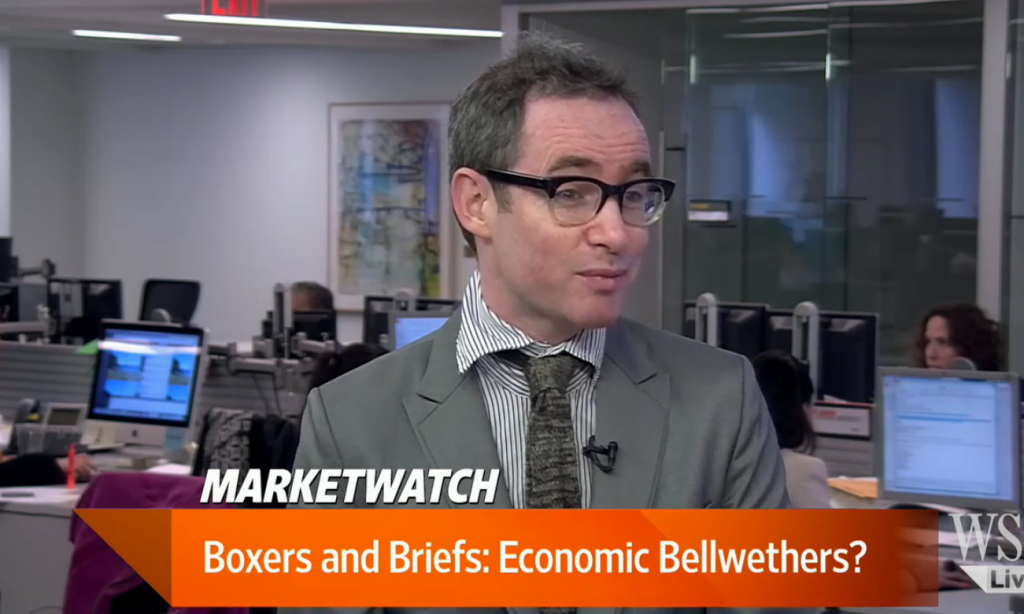We’ll lay it out for you unambiguously.
You come here to learn about finance, right? If we’re doing our jobs right, you want to get some lasting knowledge about how to get rich, or at least avoid being poor, while cutting through the contradictory and facile advice available elsewhere.
But we’re just a humble little website, run by a couple of people with nary a CPA designation nor a professional degree between us. Why not read the big players instead – Barron’s, Yahoo!, Dow Jones & Company? They have greater resources and research budgets than we do. They have far bigger reach. They’re headquartered in New York, Silicon Valley and New York respectively. We’re on the outskirts of Las Vegas. Why waste your time here?
Because the “financial journalists” at the online arms of the above are incompetent. They make stuff up as they go along, to get glazed eyeballs to read shocking and counterintuitive headlines.
MarketWatch is part of the Dow Jones family, which publishes The Wall Street Journal. Thus through the parent company of all these entities, News Corporation, MarketWatch is a sibling or at least a cousin to Fox Business Network.
The sallow chap at the top of the page is Quentin Fottrell; homosexual* Irishman, MarketWatch columnist and incompetent hack. Last week he wrote, was tasked to write, had an editor beseech him to write or in any case thought it was a good idea to put together a piece with this headline:
Buy stocks when men buy socks. Socks and underwear sales may be an economic bellwether
We’ll give him a pass on the headline, because someone else probably wrote it, but the article itself is just as bad. It’s hard to pick representative quotes from the piece because it’s pretty uniform and fungible, but we’ll try:
American men’s apparel sales remained relatively flat in 2012, rising just 1%… The exceptions were the two garments some men continue to wear even after they’re falling apart: underwear, up 13%, and socks, up 12%. “Men are updating the basics of their wardrobe,” says Marshal Cohen, chief industry analyst at NPD.
If you want to get quoted by a rotten journalist, develop a flair for wordiness and grandiosity. All this time you thought you were buying socks, when in point of fact you were updating the basics of your wardrobe. One more thing. It wouldn’t be journalism without some perverse and unwarranted speculation:
And that may be a positive sign for consumer spending overall.
Because as socks and underwear spending goes, so goes the economy? That’s the kind of chaotic allegation that’s almost too easy to disprove. The idiot author himself, 4 lines earlier, stated that the (alleged very alleged) sock-and-underwear uptick isn’t even enough to stimulate spending in the clothing sector, let alone make a perceptible difference in the economy at large.
Okay, we’ve got
- baseless allegation
- overblown quote
What’s next? Of course. Obligatory academic, one with enough time to answer a media request because her field of study isn’t what you’d call intellectually demanding:
“Some men’s underwear may be so worn out that they have no choice but to replace it — or to go commando,” says Vicki Morwitz, a professor of marketing at New York University. “For men who don’t care so much about underwear, during lean times, they probably made do with what they had.”
Now another quote, this one from a sad little attorney who created a vanity website during the Clinton Administration and hasn’t updated its look since:
“With the economy improving, it must be the right time for men to get rid of all that holey underwear,” says Edgar Dworsky, founder of ConsumerWorld.org.
That looks like fun! Mind if we try?
“With Hanes selling briefs for a dollar-freaking-42 apiece, men will replace their underwear regardless of national economic conditions. Also, everyone who contributed to this embarrassment of an article deserved to have Kermit Gosnell stick a scalpel in their spinal cords and twist,” says Greg McFarlane, founder of ControlYourCash.com.
If you think the connection between underwear sales and gross domestic product is tenuous, wait till you see what Quentin Fottrell’s next argument is. He thinks, or writes as if he thinks, that increased underwear sales lead to…more men buying memberships at dating sites. Because they feel confident in their new boxer briefs. We’re not joking:
“When men start to gain confidence, they do go out more and date more,” says Z. John Zhang, professor of marketing at The Wharton School at the University of Pennsylvania. Romantic entanglements — as measured by online dating sites — have indeed seen an increase. The industry is now worth about $1.2 billion, up 4% from a year ago, according to research firm IbisWorld.
It’s a double-fecal column! Two marketing professor quotes, and dubious data points from two research firms! Unfortunately Fottrell stops before trying to determine how much of that 4% is attributable to the original phenomenon, men putting something between their skin and their pants.
Will Fottrell take this to a third level of absurdity? How about…another sign of economic recovery is that spending on divorce lawyers is up by (arbitrary percentage) because of wives catching their newly confident and securely boxered husbands on AshleyMadison.com? Does that work?
Now yet another brainless quote (the last one, we swear) from another quasi-intellectual:
Many men made undergarment purchases at off-price retailers and online, while fewer shopped at national chains…[This is] still a good sign, says consumer psychologist Adam Ferrier. “Post-recession, we are told the economy is improving and that people are spending again,” he says. “The first to go — items like men’s underwear — is often the first back on the shopping list.”
The first to go? Men stopped buying underwear, and now they’re collectively finding the $10 for a 7-pack that they couldn’t afford before? Fottrell can’t be dumb enough to believe his own lies. He just can’t. The entire purpose of this article was an excuse to show pictures of shirtless models and stock photos of men’s nether regions covered by novelty briefs with lipstick impressions on them. (We told you Fottrell’s homosexuality was relevant.)
“It doesn’t hurt for men to see ads with David Beckham, Mario Lopez and Tim Tebow,” Morwtiz (sic) says.
She’s got a point. If a 90%-naked pro athlete doesn’t motivate people to buy, nothing will:
There’s more. There’s always more:
[R]ecent studies suggest men are more likely to buy eye gel, moisturizer, and other “metrosexual” products online.
Oh, for God’s sake. You’re already out of the closet, Quentin. What else is there? Spare us the residual anger directed at your father for forcing you to take boxing lessons while your more liberally parented friends were learning how to stepdance in the adjacent studio. Write Dad a letter instead.
As always, there’s a lesson to be learned here. Folks, do yourselves a favor and stay the hell away from the financial media. You will learn nothing, and that’s on a good day. On a bad day you’ll have your precious time wasted by trash like this. Underwear as economic stimulus. Good God. Just learn a few fundamentals. Buy assets, sell liabilities, look at each transaction from the other party’s perspective, don’t incur student loan debt, eliminate rather than tone down your money-sucking bad habits, and buy our book. Was that so hard?
*Relevant because he talks about it a lot and uses it as his stock-in-trade. We wouldn’t mention Matthew Berry without referring to him as a fantasy sports dork. This is the same thing. People who define themselves by their unconventional sexual predispositions are no more sufferable than people who can’t shut up about their imaginary baseball teams.




